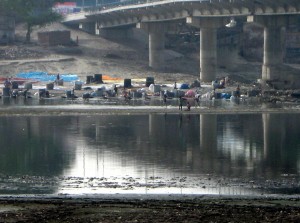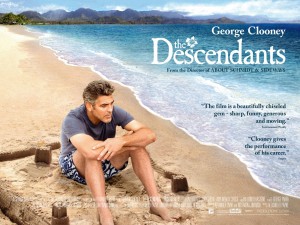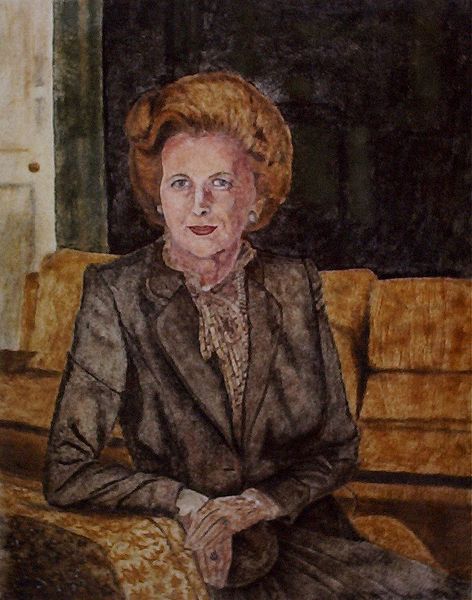Fuzz Kitto preached at church this morning and played this magnificent clip of people playing John Lennon’s classic Stand by Me as part of the ‘Playing for Change’ initiative. I think some of the lyrics were changed to highlight the importance of standing by each other. As Roger Ridley in this moving performance says, no matter our situation in life, we need somebody to stand by us. We are made for relationship, and without healthy relationship in our lives, we are less human than we could be. We are created for God and for each other. Check out this inspirational clip:
Author: soulthoughts (Page 27 of 53)
 If you were walking around in a supermarket not long after Christmas you could have been forgiven for thinking that you had skipped a couple of months of your life, such was the proliferation of chocolate Easter eggs already for sale. We are a society addicted to consumption. We want it all and we want it now.
If you were walking around in a supermarket not long after Christmas you could have been forgiven for thinking that you had skipped a couple of months of your life, such was the proliferation of chocolate Easter eggs already for sale. We are a society addicted to consumption. We want it all and we want it now.
The temptation to succumb to the consumerist way of life is with us daily. So as we come into the season of Lent, which is about going without, it is timely to remind ourselves that Jesus faced the same temptations we do. In Luke 4 we read that Jesus was shown all the kingdoms of the world, in all their glitz and glamour, and was told it could all be his if he would just sell his soul. Those forty days in the wilderness for Jesus were a time of extreme testing and trial, and it is during Lent that we identify with this as many of us make our own sacrifices.
Jesus resisted all the temptations thrown at him during that time, because he knew a better way. Not an easier way, but a better way. What the gospels show us, and what Lent reminds us of, is that the way of Jesus is the way of the cross. In his day that meant nothing less than a death sentence. When Jesus told his disciples about this in Mark 8, it was the major turning point in his ministry. It was the beginning of the end. Sometimes referred as the Caesarea Philippi Declaration, this was the first time Jesus made clear to his disciples that he was going to go to Jerusalem to meet his death.
What we also see in this enormously significant passage is that the disciples just didn’t get it. How could they? They had a completely different mindset. Their idea of a messiah was one who would overthrow the tyranny of the Roman Empire. After all, that was something that the Jews had been pinning their hopes on for hundreds of years. They had been under the yoke of oppression for that long and they had had enough. So when Jesus came along and spoke to his disciples about self-denial and taking up your cross and that he was going to die, should we be surprised that they couldn’t deal with it?
If we ever needed it, Lent is a time for reminding us that following Jesus is a struggle. When we commit our lives to bringing in the kingdom of God in all we are and all we do, it can be easy for cynicism to easily take hold as we see corruption and injustice always seeming to win the day. How do we go on when it always seems to be two steps forward and three steps back?
Lent though prepares us for what lies ahead. For many it is a time to give up some indulgence, like chocolate or coffee (or something even more difficult like Facebook!). It is a time to identify with suffering, with going without, in order to realise more our dependence on the God of hope. In a world where we constantly face the temptation to want it all and want it now, Lent offers a different way. The way of Jesus is the way of the Cross. It is an unavoidable fact of life. There is no resurrection without death.
This year, let’s consider giving up something during Lent. It can not only bring us closer to God, but it also helps us identify more with those whose entire lives consist of going without. And by doing this, you may just find that you experience a joy that you would not otherwise experience; a joy that can give you strength to continue the good fight. As author Walt Wangerin says, “Joy knows suffering and still does not despair. Joy sees the suffering of others and does not turn away, but moves forward in courage, to comfort and to heal.”
The prophet Nehemiah also says, “the joy of the Lord will be your strength”. Jesus knew this. He knew it on the night he was betrayed and we can be sure he knew it during his forty days in the wilderness. The journey of struggle to set the world right is a long one. But it is one that brings life and joy, and that is why it is worthwhile. May that be your experience of Lent this year.
How easy it is to lose our spiritual hunger when we are so satiated in our society, when we have so many choices that we suffer from choice anxiety and we don’t feel a need for God. In that vein, here is some more wisdom from Richard Rohr that I want to take on board:
Beginner’s mind is a posture of eagerness, of spiritual hunger. The beginner’s mind knows it needs something, just as children do. This is a rare feeling in today’s treacherously seductive culture. Because we are offered so many things that are immediately satisfying (albeit in a superficial way), it is hard to remain spiritually hungry. We give answers too quickly, take away pain too easily, and too commonly stimulate ourselves with nonsense. In terms of soul work, we dare not get rid of pain before we have learned what it has to teach us. Much that we call entertainment, vacations, or recreation are merely diversionary tactics,and they do not “re-create” us at all. The word vacation is from the same root as vacuum, and means to “empty out,” not to fill up. One wonders how many people actually have such vacations!
We must be taught HOW to stay with the pain of life, without answers, without conclusions, and some days without meaning. That is the path, the perilous dark path of true prayer. It is how contemplative prayer differs from the mere recitation of prayers (which can actually be another diversionary tactic instead of any kind of self-emptying).
Adapted from Everything Belongs: The Gift of Contemplative Prayer, pp. 43-47
 This third post on my time in India last year looks at some of the similarities between current Indian society and what we see portrayed in the gospels. Such similarities make the Gospel come alive in a place like India, moreso than in my hometown of Melbourne, Australia.
This third post on my time in India last year looks at some of the similarities between current Indian society and what we see portrayed in the gospels. Such similarities make the Gospel come alive in a place like India, moreso than in my hometown of Melbourne, Australia.
Another issue that was highlighted to me in India was the plain falsity of the idea that our Western version of Christianity is what the world needs to hear. Most of the Bible was written by people who were under oppression. When we view it in that context, it is simply incomparable to our own interpretation. This is where a book like Robert McAfee Brown’s Unexpected News: Reading the Bible with Third World Eyes is so helpful. We need to read the Bible through the eyes of the poor, but more importantly, through the eyes of those who wrote it, because they were mainly poor, but also because they knew their own culture better than we ever will thousands of years later.
Read the post here.
 In this second post on my reflections on India, I discuss how being in India reminded me of some stories from the gospels which came more alive to me after being there. What really struck me was how Jesus treated everyone with such complete dignity, and the transformation he gave was in every way – social, emotional, spiritual and personal. Read the post here.
In this second post on my reflections on India, I discuss how being in India reminded me of some stories from the gospels which came more alive to me after being there. What really struck me was how Jesus treated everyone with such complete dignity, and the transformation he gave was in every way – social, emotional, spiritual and personal. Read the post here.
 In May last year my wife and I were fortunate enough to visit India. My brother and his family are currently living there, and we thought it would be a good chance to see some World Vision projects as well. We spent 10 days there, which included a day in Chennai and the rest of the time in New Delhi. India had quite a profound effect on us, and I wrote some articles to share our thoughts about what is a fascinating place. The articles are being posted onto the Micah Challenge blog. The first one, called ‘Keeping the poor in their place’ can be read here.
In May last year my wife and I were fortunate enough to visit India. My brother and his family are currently living there, and we thought it would be a good chance to see some World Vision projects as well. We spent 10 days there, which included a day in Chennai and the rest of the time in New Delhi. India had quite a profound effect on us, and I wrote some articles to share our thoughts about what is a fascinating place. The articles are being posted onto the Micah Challenge blog. The first one, called ‘Keeping the poor in their place’ can be read here.
 In this movie set in the beautiful islands of Hawaii, George Clooney plays brilliantly the role of Matt King, the father who could probably relate a bit to the suffering of Job. His wife has just had a boating accident, is in a coma and is about to die. He then finds out that she had been having an affair. And to top it off, the guy she was having an affair with is about to make a bucketload of cash on a property sale that King is working out with his family.
In this movie set in the beautiful islands of Hawaii, George Clooney plays brilliantly the role of Matt King, the father who could probably relate a bit to the suffering of Job. His wife has just had a boating accident, is in a coma and is about to die. He then finds out that she had been having an affair. And to top it off, the guy she was having an affair with is about to make a bucketload of cash on a property sale that King is working out with his family.
The Descendants portrays the dignified response of a man and his family who are experiencing immense suffering. Despite his impending loss and and recently exposed betrayal, King conducts himself with honour, confronting the man who was sleeping with his wife and allowing him to pay a last visit to her on her death bed. King could have punched his lights out, but he didn’t. And, regarding the property deal, in the end he allows virtue to triumph over cold hard cash by scuttling the deal through his refusal to sign the relevant documents for the sale. King chooses the right way over the more tempting and exciting profitable way. He chooses to keep the property in the family, as the family’s descendants would likely have wanted, much to the chagrin of his cousins who are gobsmacked at his seemingly irrational decision.
This movie shows that character is more important, long-lasting and satisfying than quick gains and cheap shots. King’s seventeen year old daughter, Alex, is also impressive as she follows the example of her Dad in her quickly developing maturity. She lovingly looks after her younger sister, Scottie, and helps their Dad track down the infidel who has been sleeping with his wife. Alex’s immature friend, Sid, is another one who goes through a redemption of sorts as he realises the lack of tact of some of his earlier comments – particularly to Elizabeth’s parents – and pays the price for it. Being a young man about to enter early adulthood, Sid could have chosen to remain defiant and be stubborn and do things his way. But instead he learns from his mistakes and becomes a valuable support to King and the family, to the point that King himself comes to him one night to ask his advice about how to handle his multiple life challenges.
I have been reading Proverbs recently and, as many would know, there is plenty of great advice in that marvelous book about living a life of wisdom. I remember when I read the early chapters of Proverbs as a young man myself, that I had the profound realisation that that is the type of person I want to be. The main characters in this raw and emotional movie provide a real-to-life example of living out much of the sage advice of Proverbs to young men, and indeed to people of all ages and backgrounds.
Dignity, relationship and virtue are the enduring qualities of life. They are what will ultimately win out. They are what will triumph over short-term gain, revenge, and quick riches in the end, if not in this present life. The Descendants is testament to the riches of the wisdom of Proverbs over the riches of this life, which will pass away and prove worthless in the end. Recommended.
 There is a sense of irony in the fact that this movie, told from the point of view of an ageing, frail, and dementia-suffering former Prime Minister of Great Britain, Margaret Thatcher, is called The Iron Lady. Her frailty proves again that life catches up with everyone in the end.
There is a sense of irony in the fact that this movie, told from the point of view of an ageing, frail, and dementia-suffering former Prime Minister of Great Britain, Margaret Thatcher, is called The Iron Lady. Her frailty proves again that life catches up with everyone in the end.
Right from the beginning of her entrance into public life, Thatcher had to fight harder than the vast majority of budding politicians of her time simply because she was a woman. I wonder if this was at least part of the reason that many of her policies were so incredibly harsh. Initiatives such as trying to introduce a flat tax – where everybody, rich and poor, pay the same amount, were rightly not tolerated, not just by the workers of Great Britain, but by many in her own Conservative Party itself. It was policies such as this, borne out of her own determination that people should work hard no matter their background, that ultimately led to her political demise after eleven turbulent years as Prime Minister.
This movie about Great Britain’s first female Prime Minister – played brilliantly by Meryl Streep – tells the story of a woman who is pretty much self-made; someone who rose above societal and cultural norms of the day which said that the harsh world of politics is best left to those who are ‘stronger’ – men. It tells the story of a determined woman who would let nothing get in the way of her own ideas. Her response to the Argentinian invasion of the Falkland Islands in 1982 was portrayed in the movie as one such example of her leadership being done either her way or no way.
As the ageing Thatcher looks back on her own life, one scene takes us back to her time as a young woman when her partner, Dennis Thatcher, proposes to her. After what must have seemed like an eternal pause for Dennis, she only says yes once she makes perfectly clear that she was not going to be the type of wife who was going to stay home and do the dishes, just washing others’ cups (Dennis then explains that this was the quality that he most admired in her). She wanted to be ‘more important’ than that. In the final scene of the movie, we then see a poignant moment in which she stands at the sink washing a cup herself, finally being able to let go of the past and move on with life on her own, without her beloved deceased husband of whom she had been having regular hallucinations. And when she finally and reluctantly says goodbye to Dennis in her mind, she hears him say, “You’ll be fine on your own dear; you always have been.” And so the self-made, determined woman finally comes to grips with a sense of reality in her world.
Though not referred to in the movie, it was Thatcher who once said that there is no such thing as a society, that we are all just individuals. Such a dog-eat-dog, competition-based foundation for her ideas has shown throughout history to lead ultimately not to a happier society, but to one which is more callous and uncaring. In my opinion – and I fully understand that many will disagree – Thatcher’s policies were reminiscent of those implemented in Victoria by Jeff Kennett in the 1990s; policies which certainly improved the economy, but at the cost of ultimately producing more losers than winners, thereby defeating the purpose of having a stronger economy if less people benefit from it.
For those who lived through the times and can remember them, this movie is an important reminder of a decade of huge change in the world. There was recession, privatisation of public assets on an unprecedented scale, the constant fear of nuclear holocaust, and the eventual fall of Communism. I was only a youth when Thatcher was in charge of Great Britain, but having since learned about her ideology, I am convinced that, while her ideas at a difficult time in British history were not difficult to understand, they created a society which was more divided than united. Such a society will not survive with any harmony in the long term.
This movie of the personal story, rise to power and subsequent reminiscing of the most controversial Prime Ministers in the recent history of Great Britain shows in fine detail how the Iron Lady came to form her ideas of how she could make her country a better one. Recommended.
A friend sent me this article and link to a movie about sex slavery. One of the alarming things is the quote that “we know that porn profits directly fund the acquisition of new women and children being forced into sex slavery.”
Porn is never a bit of innocent, harmless fun. It is not even a victimless crime. Simply, there is nothing good about porn at all. I wrote more about this here some time ago.
I first saw this on Ben Witherington’s website last week. It’s a cracker.



